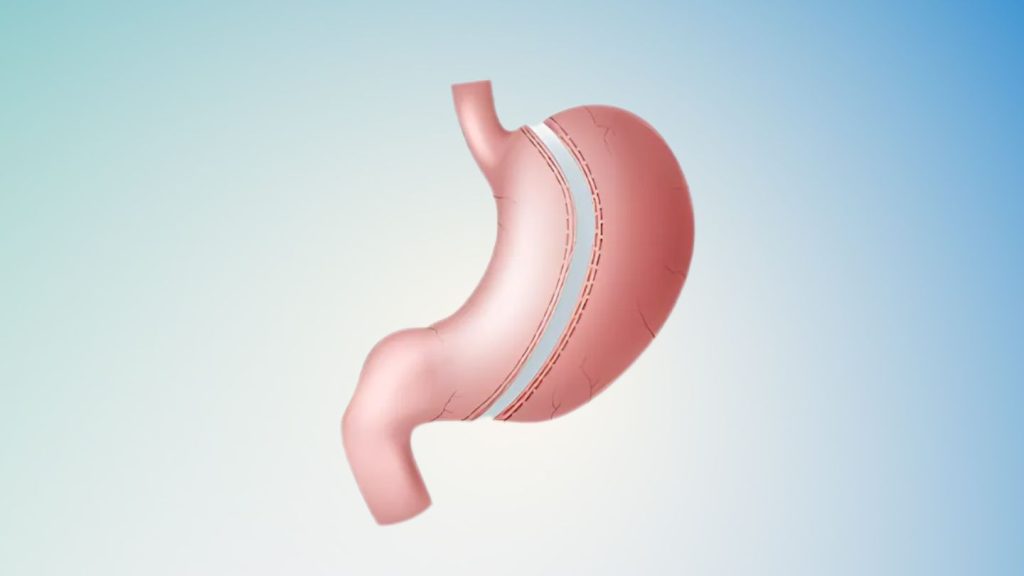
The Science Behind the Different Types of Weight Loss Surgery: What You Need to Know
To understand the science behind the different types of weight loss surgery, it’s crucial to know how each procedure works. These surgeries use methods like gastric restriction and digestive rerouting to help patients lose significant weight. This blog will break down the science of each surgery type, giving you a clear picture of how they lead to weight loss.
Key Takeaways
- Weight loss surgery is an effective option for severe obesity, designed to improve health and quality of life when traditional methods fail.
- Different bariatric procedures, such as gastric sleeve and gastric bypass, work through mechanisms of restriction and malabsorption to facilitate significant weight loss.
- Long-term success relies on patient commitment to lifestyle changes and regular follow-up care,
Understanding Weight Loss Surgery
Bariatric surgery, also referred to as weight loss or metabolic bariatric surgery, serves as an effective strategy for those battling severe obesity and carrying extra body weight. This option is often explored when lifestyle changes such as dieting and exercising prove insufficient or if the individual’s health is compromised due to their weight. To be eligible for these surgeries, individuals must have a Body Mass Index (BMI) of at least 40 or a BMI of at least 35 with serious coexisting medical conditions like diabetes or sleep apnea. The goal of these procedures extends beyond shedding pounds. They are designed to improve related health issues caused by obesity, thus enhancing overall health.
Different types of bariatric surgery procedures function through distinct mechanisms. Procedures like the gastric sleeves work mainly by limiting stomach capacity, which leads to earlier satiation during meals. Conversely, operations such as gastric bypass alter how food is digested in order to decrease calorie and nutrient absorption into the body. Some techniques incorporate both restrictive and malabsorptive elements for amplified effects on weight loss outcomes—knowledge that underlines why surgical interventions can offer profound, sustained results in losing weight.
It’s imperative to understand that undergoing a bariatric procedure isn’t an instantaneous solution—it demands lifelong commitment towards changing habits, including following prescribed dietary guidelines, maintaining regular exercise routines, and keeping up with subsequent healthcare appointments post-surgery—since continued success depends largely on adherence afterward.
For many suffering from extreme obesity-related challenges, it offers hope—a chance not just at significant physical transformation but, more importantly, life-enhancing benefits such as reducing complications tied directly to overweight status, all while empowering them to take charge of their own well-being. This path requires unwavering dedication, comprehensive support, and well-informed decision-making when considering available surgical choices.
Gastric Sleeve Surgery: Mechanisms and Benefits
Sleeve gastrectomy, commonly referred to as gastric sleeve surgery, ranks among the most prevalent bariatric surgery options. This form of weight loss intervention entails excising roughly 80% of the stomach, culminating in a tubular “sleeve”-shaped remaining section similar to the shape of a banana. It is typically executed via laparoscopy, which involves creating five small openings, thereby being less invasive and promoting a swifter healing period.
Gastric Sleeve Surgery principally operates on the principle of constriction to facilitate weight reduction. The dramatic decrease in stomach volume brought about by this method caps food intake at any given time, triggering an early sensation of fullness. By diminishing gastric capacity, not only does it cause individuals to ingest smaller portions, but it also alters key hormones associated with hunger control and metabolic regulation. A notable suppression in appetite is often reported by those who have undergone this procedure for up to two years post-operation.
The scope of advantages provided by gastric sleeves extends well beyond mere weight loss. Many observe enhancements in conditions correlated with obesity, such as type 2 diabetes, elevated blood pressure levels, and obstructive sleep apnea. Post-surgery life quality enhancement usually follows due to increased engagement in physical activity, leading to better overall wellness.
For numerous people, considering this medical step has proven transformative: favoring lifestyle adjustments that are essential after undergoing said surgical process becomes more appealing when weighed against its potentially positive outcomes.
Gastric Bypass Surgery: How It Alters Digestion

Roux-en-Y gastric bypass, a widely recognized type of bariatric surgery, involves the creation of a considerably smaller stomach pouch by excising a substantial segment of the stomach and connecting the small intestine to this newly formed pouch. As such, it significantly decreases the volume of food that can be held in the stomach, thereby substantially reducing caloric intake.
The surgical alteration profoundly modifies how the gastrointestinal system functions. By diverting food away from much of the small intestine, there’s a notable reduction in calorie and nutrient absorption by the body. Not only does this limit how much one can eat, but it also alters hormone levels and intestinal bacteria composition, which may have favorable impacts on metabolism and digestion—take, for instance, reduced ghrelin levels post-procedure contributing to diminished hunger sensations.
Adapting to eating habits after undergoing gastric bypass is critical. Patients typically transition to eating more frequent meals that are lesser in quantity due to their restricted stomach capacity coupled with modified digestive processes.
Increased insulin sensitivity following gastric bypass greatly aids individuals with type 2 diabetes as it enhances glucose regulation within their bodies. Henceforth, both restriction-induced weight loss plus extensive metabolic improvements offered alongside Roux-en-Y gastric procedures provide an all-inclusive treatment modality for obesity management.
Adjustable Gastric Band: Restriction Without Removal
Also known as the lap band, the adjustable gastric band is a bariatric surgery method designed to limit food consumption without surgically removing any portion of the stomach. By encircling the upper section of the stomach with an inflatable ring, it forms a small pouch above this area. The ring’s inflation level can be precisely controlled through a port placed under the skin due to its adjustability.
One major advantage of this procedure is that, unlike many other bariatric surgeries, it can be reversed by simply removing the band if required. This offers patients who are unsure about making irreversible alterations to their body an option that still allows for significant weight management control. Adjustments can be tailored over time in response to each patient’s individual journey and results—particularly within their initial year after surgery when regular follow-up assessments are crucial for optimal adjustment of tightness levels.
Undergoing gastric banding typically leads patients to experience satiety on much smaller amounts of food than before, which aids substantially in reducing caloric intake and fostering weight loss goals. Performed via laparoscopic methods characterized by fewer cuts compared to traditional open surgeries ensures faster recovery periods post-operation.
Opting for an adjustable gastric band means choosing a surgical path toward losing weight that prioritizes minimal invasiveness and adaptability—with reversibility offering additional assurance should one need or desire removal at any stage following insertion.
Duodenal Switch: Combining Restriction and Malabsorption
The procedure known as the duodenal switch, or biliopancreatic diversion with duodenal switch, is a highly effective form of weight loss surgery that utilizes both restrictive and malabsorptive methods. Initially, it involves performing a sleeve gastrectomy to create a smaller stomach pouch by removing a significant section of the stomach. This step is followed by bypassing a large segment of the small intestine, which diminishes the body’s capacity to absorb calories and essential nutrients.
For individuals who have a BMI exceeding 40, this particular weight loss surgery tends to achieve more substantial results compared to other bariatric procedures.
Some variations, like Stomach Intestinal Pylorus Sparing Surgery (SIPS), have been developed in an effort to minimize possible complications. These modifications involve attaching the small intestine in such a way that forms a loop configuration aiming at boosting safety and improving outcomes. The combination of reduction in stomach size with limited nutrient absorption offered through procedures like the duodenal switch stands out as an encompassing strategy for those pursuing significant long-term weight management achievements.
How Bariatric Surgery Affects Metabolism

Bariatric surgery leads to significant alterations in the structure of the gastrointestinal system, which results in hormonal changes impacting metabolism. One important change is the enhanced secretion of glucagon-like peptide 1 (GLP-1), which is crucial for reducing blood sugar levels and diminishing hunger pangs. The elevated release of GLP-1 following bariatric surgery plays an essential role in curbing appetite and fostering weight reduction.
Bariatric surgery has a profound effect on gut microbial populations, aiding both weight loss and metabolic improvements. Post-operative shifts in gut bacteria can support these beneficial outcomes. Surgery also affects fibroblast growth factors like FGF19 and FGF21, which govern glucose and fat metabolism, leading to better metabolic functioning. Together with diminished food consumption, these hormonal modifications and microbiome adjustments drive substantial weight loss benefits while enhancing overall well-being.
It’s vital to recognize that the success of bariatric procedures on metabolic processes extends beyond a mere reduction in body mass—the advantageous hormonal alterations along with improved metabolic function frequently progress regardless of specific losses in weight. These additional health boons include boosted insulin sensitivity as well as superior control over blood sugar levels—key aspects for sustained long-term health maintenance alongside effective management of one’s weight for patients undergoing this procedure.
Preparing for Bariatric Surgery
Arranging for bariatric surgery encompasses more than simply fixing a date for the operation. The preparation involves an all-encompassing strategy to guarantee optimal results. Commencing with adopting a nutritious diet and regular exercise regimen is vital, beginning at least three months prior to surgery. This crucial step serves to decrease visceral fat, thereby enhancing the safety and efficacy of the procedure.
Patients are required to undergo several medical evaluations that ascertain their suitability for undergoing bariatric surgery. These assessments encompass calculations of body mass index (BMI), heart function tests, as well as psychological screenings aimed at determining mental preparedness while identifying any underlying health concerns that may impede postoperative recovery. Conducting blood work and other relevant medical examinations is equally imperative to assess overall well-being along with specific obesity-related conditions.
It is imperative that individuals abandon detrimental behaviors such as smoking cigarettes, illicit drug use, and excessive drinking ahead of time. Compliance with an exclusively liquid diet during one or two weeks preceding the surgical intervention plays a significant role in reducing liver size—thus aiding in streamlining the surgical endeavor.
Collaboration with various healthcare experts—including internists, nutrition specialists (dietitians), and therapists—is integral within this extensive preparatory phase so as to ensure candidates are thoroughly equipped both psychologically and physically for enduring bariatric surgery’s rigor alongside subsequent lifestyle modifications.
Postoperative Care and Long-term Success
To achieve lasting results following weight loss surgery, attentive postoperative care is paramount. It’s imperative for patients to attend follow-up meetings at intervals of three, six, nine, and twelve months following their procedure. Such consultations enable medical professionals to track the patient’s development, make any required alterations in their plan of care, and confront potential post-surgery issues.
Following bariatric surgery procedures that alter nutrient absorption rates within the body, individuals must adhere strictly to lifelong nutritional supplementation protocols. This adherence is crucial in averting deficiencies and sustaining general well-being. Initiating physical activity soon after undergoing loss surgery aids blood flow and enhances recovery processes while helping maintain lean muscle tissue levels—key factors that not only bolster sustained success with weight reduction but also amplify life quality.
Creating a circle of emotional support through support groups or networks comprising family members and friends serves as an integral component throughout one’s journey towards significant weight loss milestones by fostering psychological healing and a continuous motivational drive. These systems offer solace during challenging times alongside valuable insights drawn from shared experiences.
The Lenox Hill Bariatric Surgery Program comprehensively integrates preoperative as well as extended postoperative management elements into its protocol while accentuating the necessity for continual advice along with supportive resources tailored specifically for each individual partaking in this transformative health venture.
Choosing the Right Type of Weight Loss Surgery

Deciding on the appropriate weight loss surgery is a pivotal choice that must be made by a healthcare professional. The selection should consider an individual’s unique health requirements, past medical history, and personal desires when determining which procedure will be most beneficial. For instance, while some individuals might find more advantages in undergoing a combined restrictive and malabsorptive operation, such as the duodenal switch, others may opt for an option that’s less invasive and reversible, like the adjustable gastric band.
Summary
Understanding the science behind different types of weight loss surgery empowers patients to make informed decisions about their health. These surgeries, whether focused on restriction, malabsorption, or a combination of both, provide life-changing benefits by addressing severe obesity and improving related health conditions. With proper preparation, diligent postoperative care, and a commitment to lifestyle changes, the path to lasting weight loss and improved quality of life becomes achievable.
At the Lenox Hill Bariatric Surgery Program, we combine decades of expertise with innovative techniques to help each patient find the most suitable solution for their needs. Offering advanced options for weight loss surgery in NY, our comprehensive program includes guidance on lifestyle transformations, personalized care, and access to a multidisciplinary team. Begin your path to healthier living with us, and take your first step toward long-term success today!
Frequently Asked Questions
What are the main types of weight loss surgeries?
The main types of weight loss surgeries include Gastric Sleeve, Gastric Bypass (Roux-en-Y), Adjustable Gastric Band (Lap-Band), and Duodenal Switch. These procedures work differently to aid weight loss through restriction, malabsorption, or a combination of both.
How do weight loss surgeries help with long-term weight loss?
Weight loss surgeries reduce the size of the stomach, limit digestion to decrease calorie absorption, and alter hunger-regulating hormones. These changes reduce appetite, promote better metabolism, and facilitate sustainable weight loss over time.
What does postoperative care after bariatric surgery involve?
Post-surgery care includes following a specialized diet, taking nutritional supplements, engaging in physical activity, attending regular follow-up appointments, and joining support groups. These steps are crucial for ensuring successful long-term results.